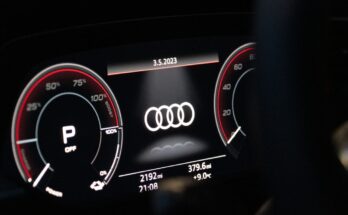When purchasing a pre-owned vehicle, conducting thorough research and price comparisons is essential. This process involves examining the market value of the specific make and model of interest, while considering factors such as mileage, condition, and additional features. Several online resources are available to assist with this research, including Kelley Blue Book, Edmunds, and Autotrader.
These platforms provide valuable information on average selling prices, potential discounts, and available incentives for the desired vehicle. After establishing a clear understanding of the market value, it is crucial to compare prices from various sellers. This can be accomplished by visiting local dealerships, browsing online listings, and contacting private sellers.
Comparing prices from multiple sources allows for a more accurate assessment of a fair price for the vehicle. It is important to note that prices may vary based on location, which should be taken into account during the comparison process. By conducting comprehensive research and price comparisons, buyers can maximize their chances of securing the most advantageous deal on a used car.
Key Takeaways
- Research and compare prices to ensure you are getting a fair deal on the car you want to purchase.
- Check the vehicle history report to uncover any potential issues or red flags with the car’s past.
- Have the car inspected by a mechanic to ensure it is in good condition and free of any major problems.
- Look for certified pre-owned vehicles for added peace of mind and assurance of quality.
- Consider the reputation of the seller to ensure a trustworthy and reliable transaction.
- Test drive the car to get a feel for its performance and condition before making a decision.
- Negotiate the price to get the best deal possible on your purchase.
Check the Vehicle History Report
Before making a purchase, it’s crucial to check the vehicle history report of the car you are interested in. This report can provide you with valuable information about the car’s past, including any accidents, title issues, service records, and more.
Obtaining a Vehicle History Report
These reports can be obtained by providing the vehicle identification number (VIN) of the car. By reviewing the vehicle history report, you can get a better understanding of the car’s overall condition and any potential red flags that may indicate it’s not worth purchasing.
Identifying Red Flags
For example, if the report shows that the car has been in a major accident or has a history of frequent mechanical issues, it may be best to steer clear of that particular vehicle.
The Benefits of a Clean Report
On the other hand, a clean vehicle history report can provide you with peace of mind and confidence in your purchase. Checking the vehicle history report is an essential step in the used car buying process and can help you avoid potential headaches down the road.
Have the Car Inspected by a Mechanic

Another important step when buying a used car is to have it inspected by a qualified mechanic. While a vehicle history report can provide valuable information, it doesn’t replace a thorough physical inspection of the car. A mechanic can carefully examine the car for any potential issues or hidden problems that may not be immediately apparent.
This can include checking the engine, transmission, brakes, suspension, and other critical components of the car. Having a mechanic inspect the car can also provide you with an opportunity to ask questions and gain a better understanding of its overall condition. The mechanic may be able to identify any potential maintenance or repair needs that could impact the car’s performance or safety.
Additionally, if the mechanic uncovers any issues during the inspection, this can be used as leverage during price negotiations with the seller. Overall, having a professional inspection done by a mechanic is an essential step in ensuring that you are making a wise investment in a used car.
Look for Certified Pre-Owned Vehicles
| Brand | Number of Certified Pre-Owned Vehicles | Average Certification Cost |
|---|---|---|
| Toyota | 500 | 800 |
| Ford | 400 | 700 |
| Chevrolet | 600 | 900 |
When shopping for a used car, it’s worth considering certified pre-owned (CPO) vehicles. These are cars that have been inspected, refurbished, and certified by the manufacturer or an authorized dealer. CPO vehicles typically come with extended warranties and additional benefits, making them an attractive option for buyers who want extra peace of mind when purchasing a used car.
One of the main advantages of buying a CPO vehicle is that it has undergone a rigorous inspection process to ensure that it meets certain quality standards set by the manufacturer. This can provide buyers with confidence in the car’s condition and reliability. Additionally, CPO vehicles often come with extended warranties that can provide added protection against unexpected repairs or maintenance costs.
While CPO vehicles may be priced slightly higher than non-certified used cars, the additional benefits and peace of mind they offer can make them a worthwhile investment for many buyers.
Consider the Reputation of the Seller
When buying a used car, it’s important to consider the reputation of the seller. Whether you are purchasing from a dealership or a private seller, it’s essential to do some research on their background and track record. This can include reading reviews and testimonials from previous customers, checking their rating with the Better Business Bureau, and looking for any red flags or complaints that may indicate potential issues.
Dealerships with a good reputation are more likely to provide transparent information about the cars they sell and offer reliable customer service. On the other hand, private sellers with a positive track record may be more trustworthy and upfront about the condition of their vehicles. By considering the reputation of the seller, you can make a more informed decision about who to buy from and reduce the risk of encountering dishonest or untrustworthy individuals.
Test Drive the Car

Evaluating Performance
During the test drive, pay close attention to factors such as acceleration, braking, steering responsiveness, and any unusual noises or vibrations. These aspects can reveal a lot about the car’s performance and potential issues.
Testing Features and Amenities
In addition to evaluating the car’s performance, use this opportunity to test out its features and amenities. Check the air conditioning, sound system, navigation system, and any other technology or convenience features that are important to you.
Gaining Valuable Insight
By thoroughly test driving the car, you can gain valuable insight into its overall condition and determine whether it meets your expectations and needs. This is a crucial step in the car-buying process, and it can help you make an informed decision.
Negotiate the Price
Once you have done your research, checked the vehicle history report, had the car inspected by a mechanic, considered certified pre-owned options, and evaluated the reputation of the seller, it’s time to negotiate the price. This is where all your preparation and knowledge come into play as you work towards getting the best possible deal on the used car. When negotiating the price, be prepared to make a reasonable offer based on your research and comparisons of similar vehicles in the market.
It’s also important to be willing to walk away if the seller is not willing to meet your terms. Remember that negotiation is a two-way street, so be open to compromise while also standing firm on what you believe is fair based on all the information you have gathered. In conclusion, buying a used car requires careful consideration and thorough research to ensure that you are making a wise investment.
By following these steps and being diligent in your approach, you can increase your chances of finding a reliable and high-quality used car at a fair price.
If you’re in the market for a reliable used car, you may want to check out Album Cars’ article on “The Top 10 Most Reliable Used Cars for Sale.” This article provides valuable insights into which used cars have proven to be dependable over time, helping you make an informed decision when shopping for a pre-owned vehicle. You can read the full article here.
FAQs
What are the benefits of buying a used car?
Buying a used car can be more affordable than buying a new car, and it can also have lower insurance costs. Additionally, used cars have already depreciated in value, so you may experience less depreciation over time compared to a new car.
What should I look for when buying a used car?
When buying a used car, it’s important to consider the car’s history, including any accidents or major repairs. You should also have the car inspected by a mechanic to ensure it’s in good condition. Additionally, consider the car’s mileage, age, and overall reliability.
Where can I find reliable used cars for sale?
You can find reliable used cars for sale at reputable dealerships, certified pre-owned programs, and through private sellers. It’s important to do thorough research and consider the reputation of the seller before making a purchase.
What should I do before buying a used car?
Before buying a used car, you should research the make and model to understand its typical reliability and common issues. You should also obtain a vehicle history report and have the car inspected by a trusted mechanic. Additionally, consider your budget and financing options before making a purchase.
What are some red flags to look out for when buying a used car?
Some red flags to look out for when buying a used car include a lack of maintenance records, signs of major damage or repairs, and a seller who is unwilling to allow an inspection or provide a vehicle history report. Additionally, be cautious of deals that seem too good to be true, as they may indicate hidden issues with the car.



